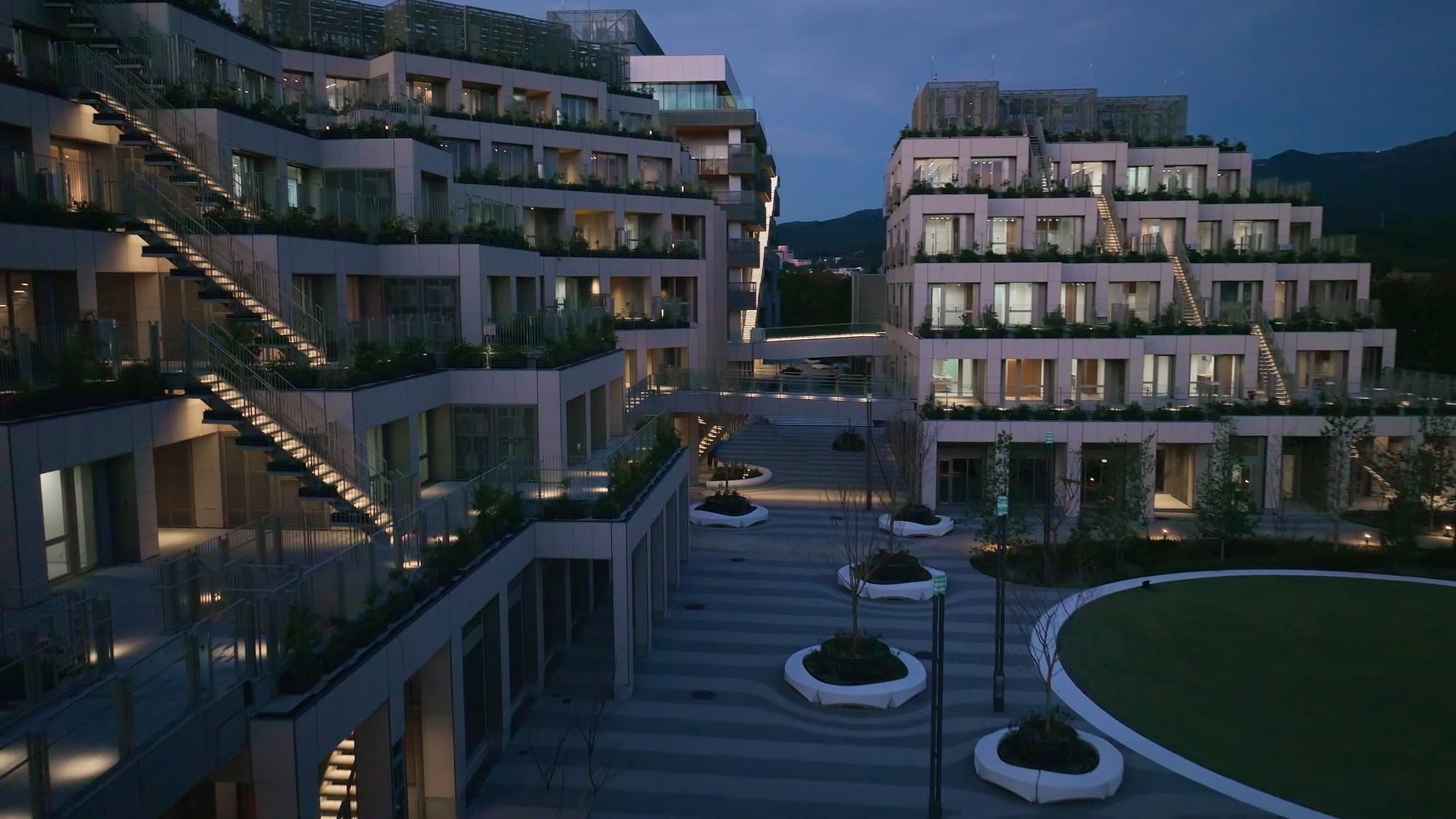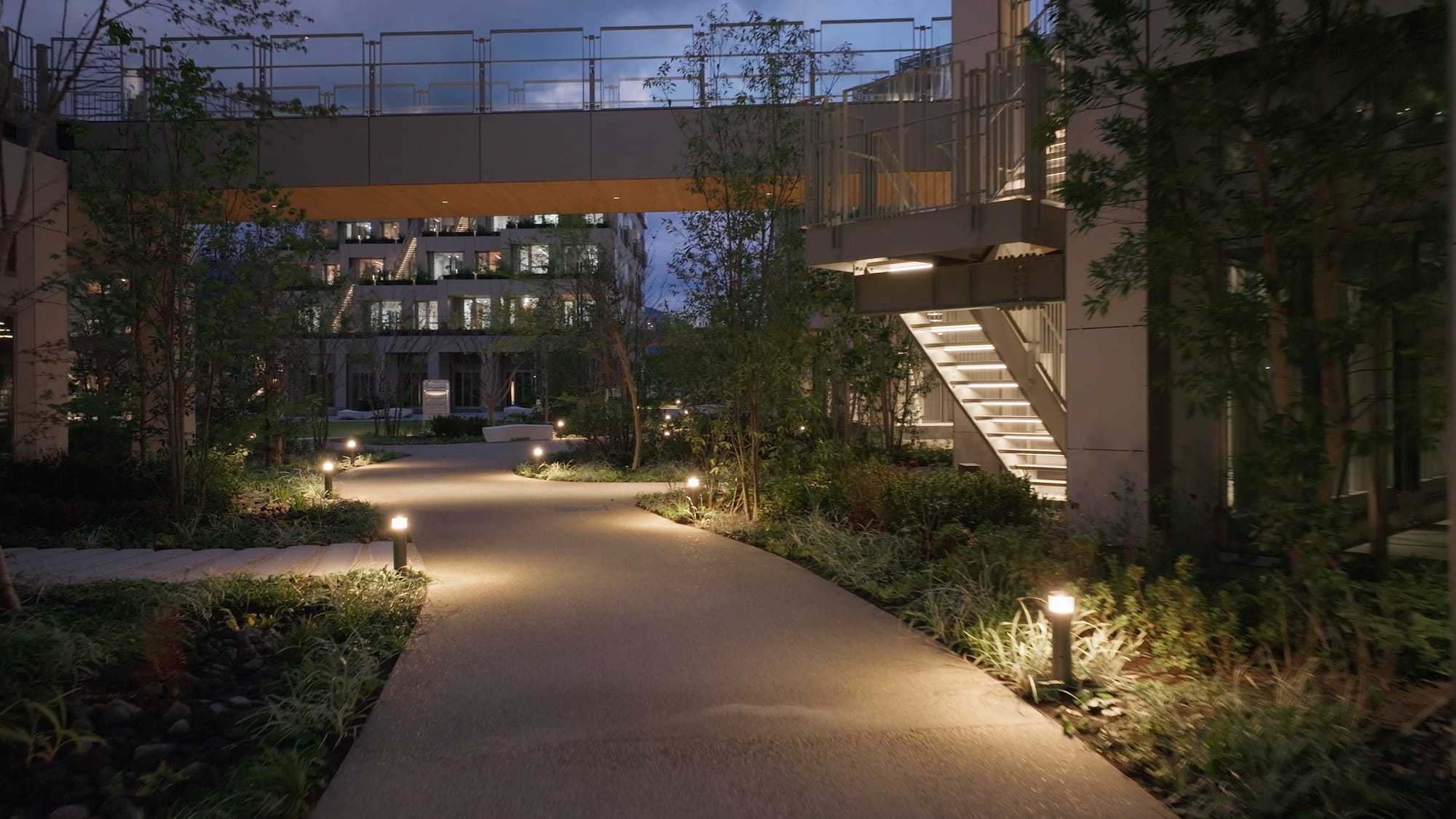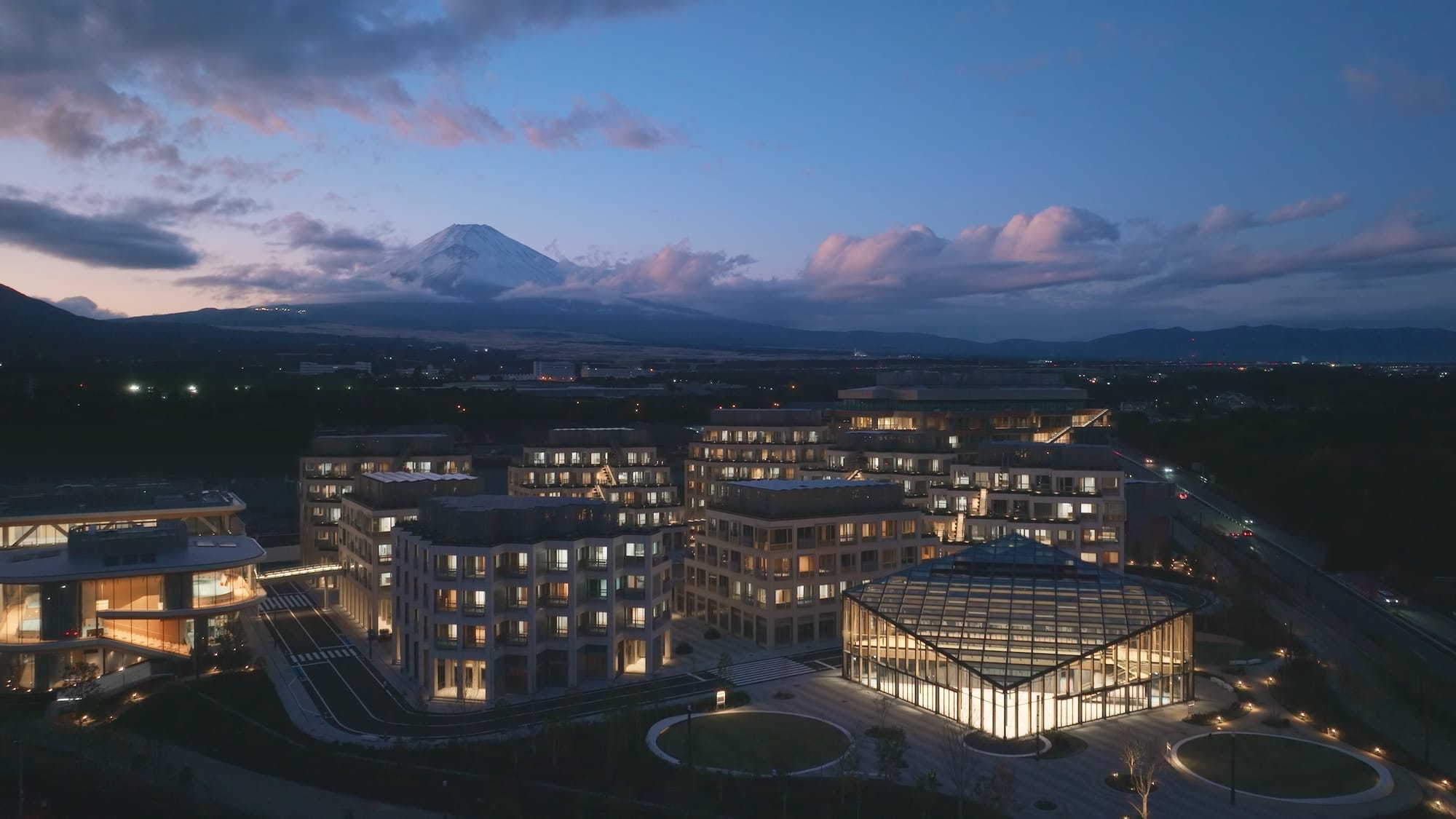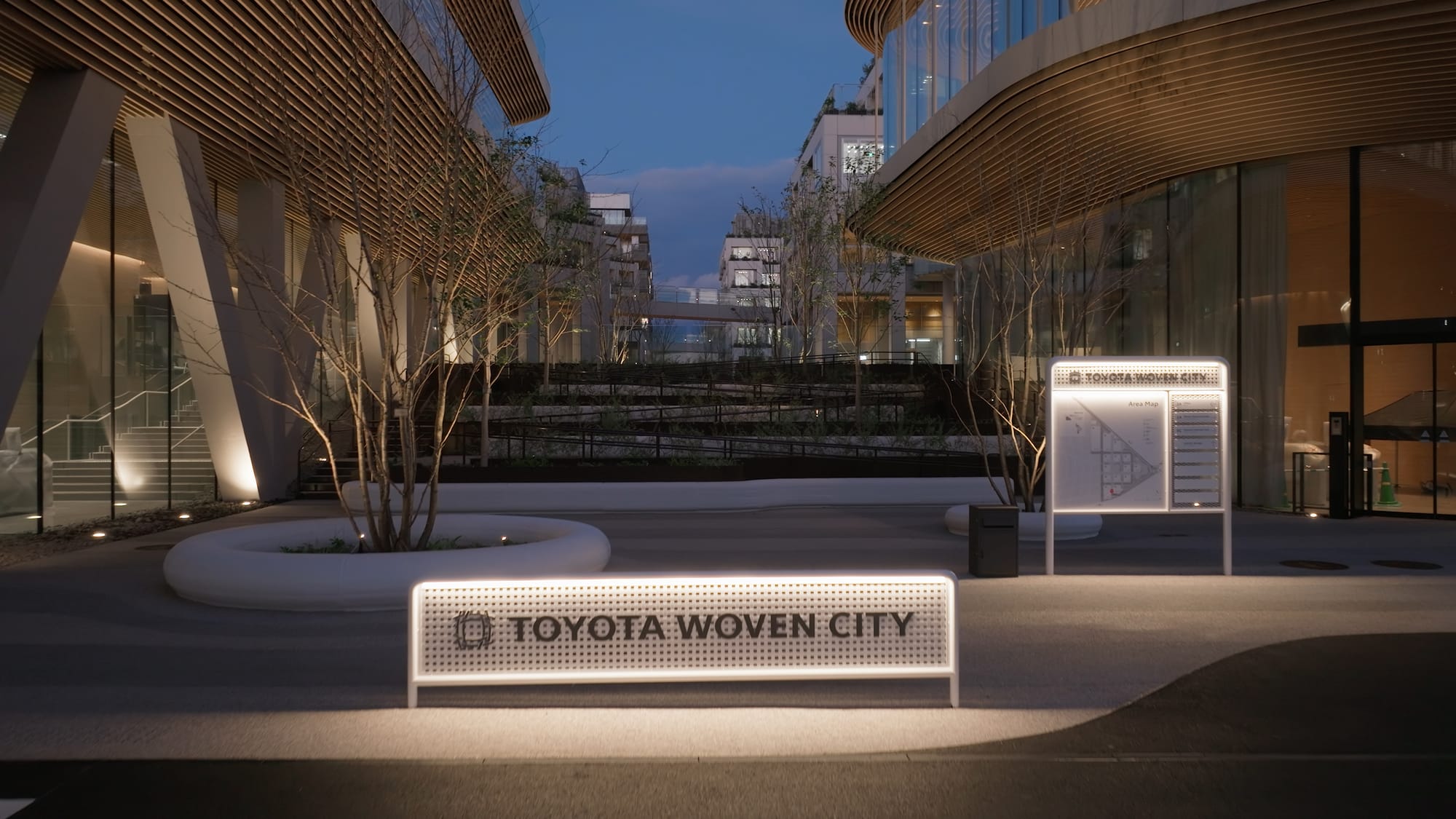The City of the Future, According to Toyota
With Woven City, Toyota is investing millions in the hopes of fostering a culture that encourages innovation and leads them to the forefront of mobility.

At the base of snow-capped Mount Fuji lies what might be the most ambitious architectural project ever undertaken by an auto manufacturer. With the flowing sidewalks, angular apartments, manicured grass and romantic lighting, this might as well be the set for some new sci-fi series. It's not though, and the company behind it really isn't known for their architectural endeavors.
Toyota’s wildly futuristic "Woven City" stands in stark contrast to the company’s otherwise conservative spending habits—making it all the more fascinating. For a company that built its fortunes off of reliable economic vehicles, this is a good showing of what the executives can dream up on company retreats. You may be wondering, what's the point of this place?
Before I get to that, I want to be clear about something. This article isn’t about the financial or cultural practicality of building a company-owned town. That is a conversation I'm not smart enough to tackle, so instead I'll talk about its history, then its purpose.
Set the Stage
Toyota announced its ambition to transform into a mobility company at CES in 2018 and people probably supported the decision, but it's Toyota. They aren't exactly known for wacky and revolutionary pursuits. The company realized this discrepancy between its goals and the public perception and decided to throw some ideas around. So, two years later Toyota pulled up to CES and unveiled a crazy concept car! Just kidding, that would be too Honda of them. Instead, they revealed plans to create a new city where all forms of transportation seamlessly blend, a town that fosters an innovative culture and acts as a spawning ground for revolutionary ideas. Introducing the "Woven City" concept.

To transform a 175-acre site, previously home to an old factory, into a prototype city where autonomous vehicles can test and pedestrians can stroll about seemed admirable, maybe even a bit crazy. This represents what Toyota envisions as the future, even if it's just a sort of trial in a limited footprint in rural Japan.
The “Woven” in Woven City highlights how three distinct types of streets or pathways are designed to suit specific users while working seamlessly together. One street is dedicated to vehicles, the second caters to smaller mobility solutions like scooters and bikes alongside pedestrians, and the third is purpose-built for leisurely strolls through the architectural landscape.
“This is my personal ‘Field of Dream,' Toyoda added. 'If you build it, they will come.’”

After unveiling plans for this Star Wars-esque community, Toyota held a groundbreaking ceremony in early 2021 at the former site of Toyota Japan's Higashi-Fuji Plant in Susono City, Japan. Construction began shortly after, and the initial phase of the construction project was recently completed in October 2024.
After four years of development, Woven City aims to house residents in the near future. Toyota wants to welcome around 100 people to the town by the end of 2025, eventually accommodating approximately 2,000 residents. Initially, visitors will be limited to relatives of those living there, but the company plans to open the city to outsiders—offering them a glimpse into this dystopian-style experiment—by late 2026.
The idea here is to foster innovation across a variety of industries, specifically mobility, but the goal seems to have a hard time coming to fruition so far. Other companies that have made commitments to locate there include:
- Damien Industries, Ltd. is an air-conditioning firm (not the first company that comes to mind for a "mobility city") that hopes to test "pollen-free spaces" and "personalized functional environments"
- DyDo DRINCO hopes to test "innovative vending machine concepts"
- Nissin Food Products Co., Ltd. currently sells instant noodles but wants to inspire new 'food cultures' (not sure what that means)
- UCC Japan Co., Ltd. will explore futuristic cafe experiences
- Zoshinkai Holdings Inc. is an education company with goals of leveraging data to foster new learning methods
With the companies on the list having little to do with mobility, the future of the city could be interesting. Guesses can be made as to why this might be the case... but one thing that comes to mind is the risk of relocating your office to an experiment like this. Companies aren't usually down to try out wacky ideas when it comes to commercial real estate investments, and the Japanese are probably some of the more conservative tenants.

On Toyota's website, the company claims that Woven City will "serve as a test course for Toyota's transformation into a mobility company," and that it was designed as a "human-centered city."
Woven City places the people who gather there - Inventors and Weavers - at its center to unlock new possibilities in the shared pursuit of "Well-being for all."
That's enough marketing jargon. The city is an architectural masterpiece, and is unlike any other city on this planet. The concept is kind of weird, but if done right it could have potential. Company towns have been tried in the past and failed, but this one might just have a winning recipe.
It will be interesting to see what people think about this place. Having a super clean community with sidewalks you could practically eat off of is nice, but what if you don't like your neighbors? If someone has to move, they won't be going very far.
Best of luck Toyota, this is a cool experiment.

Thanks for reading, and if you like interesting automotive content, please consider subscribing to Auto Digest! I send out one or two articles a month. No ads either :)



Comments ()